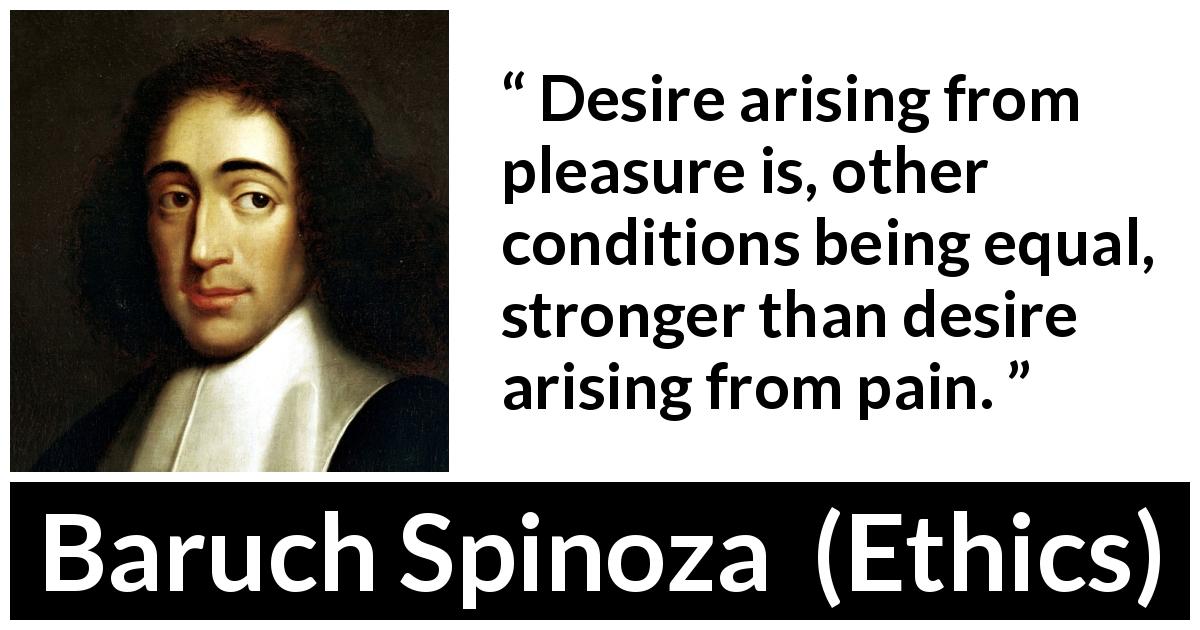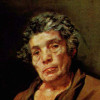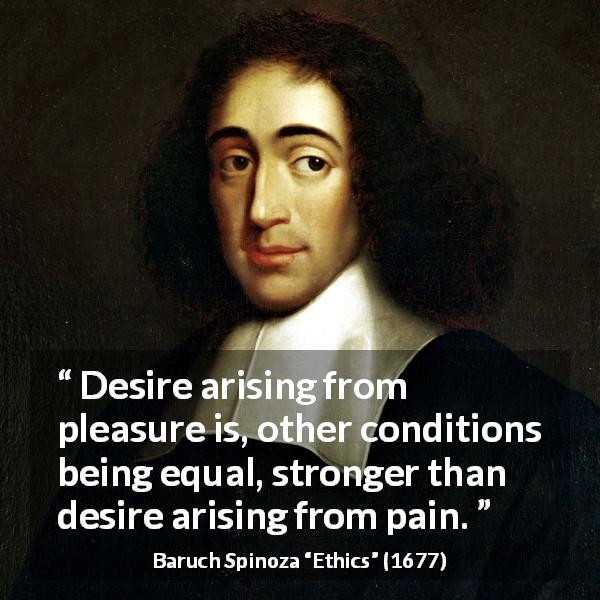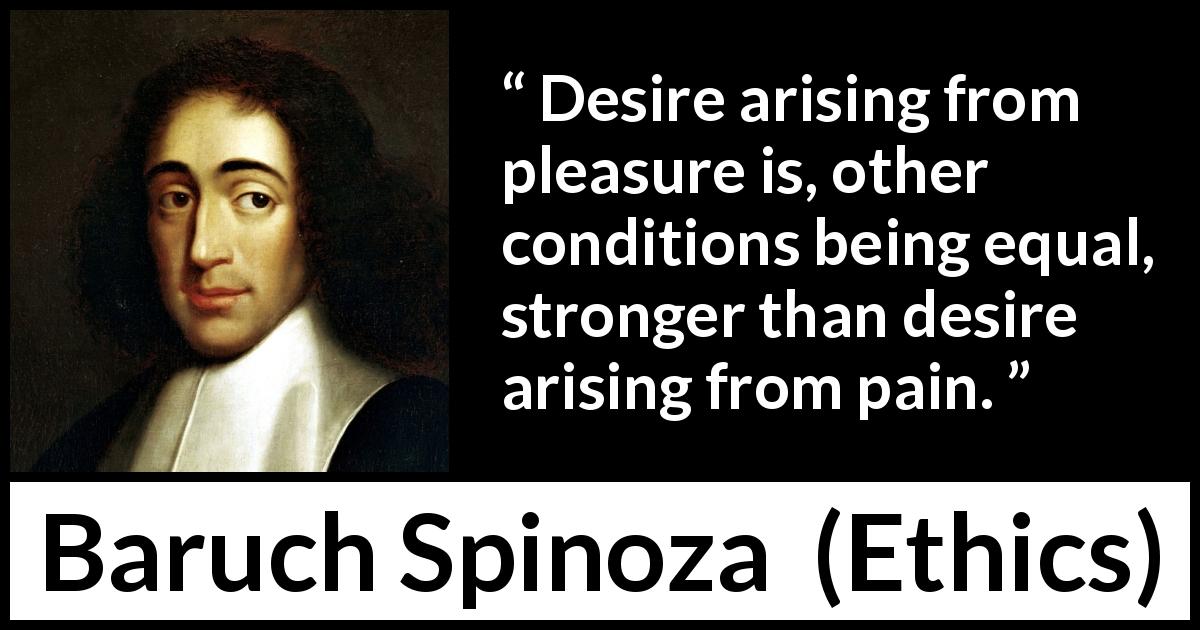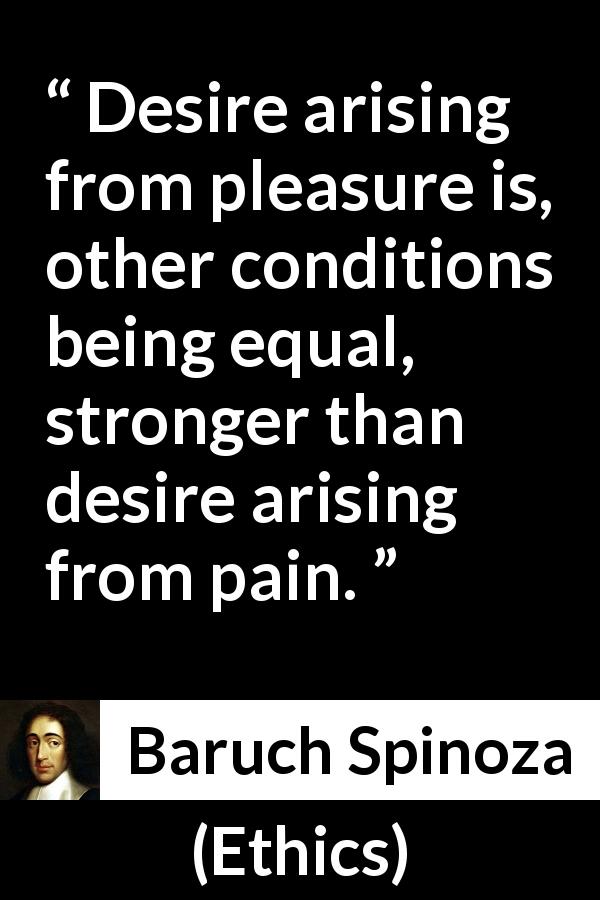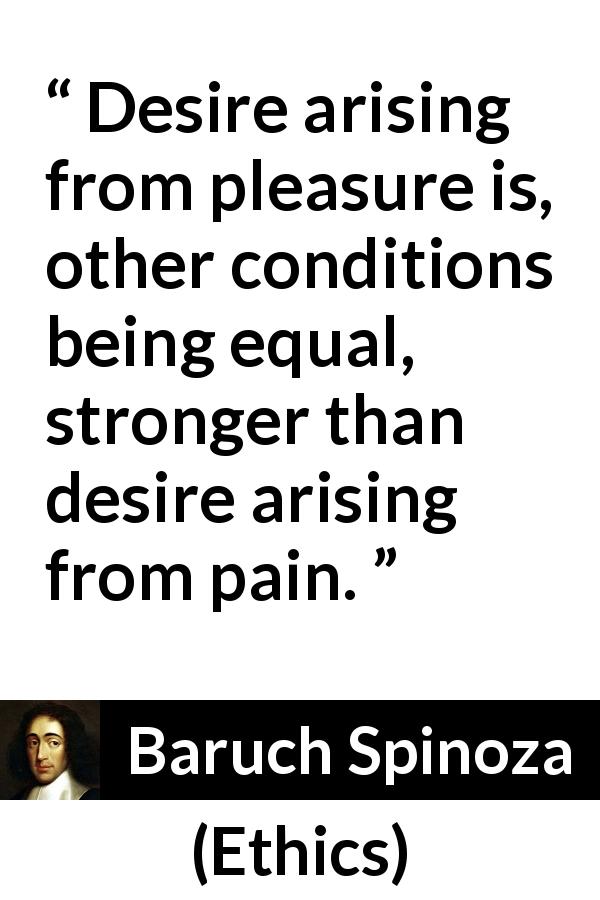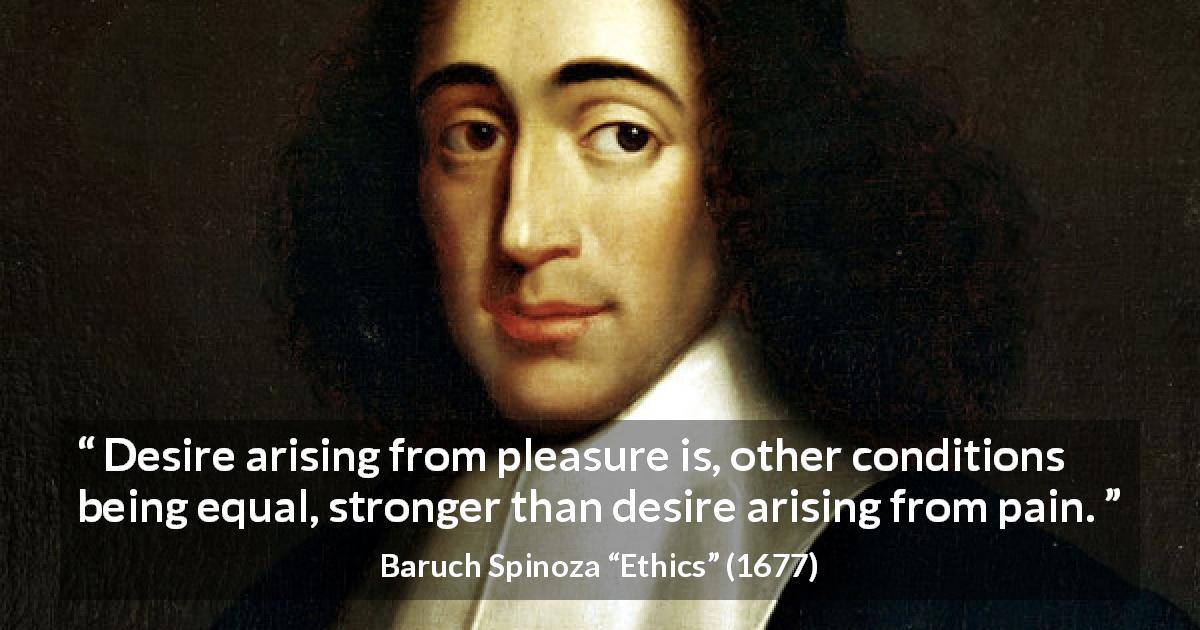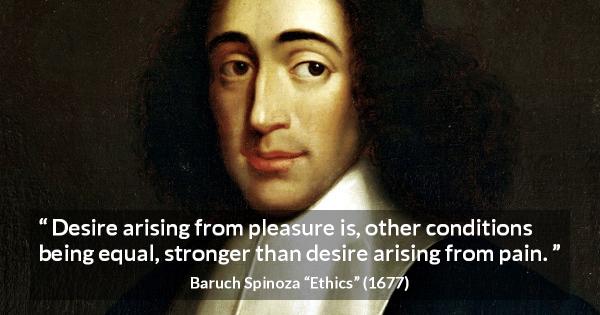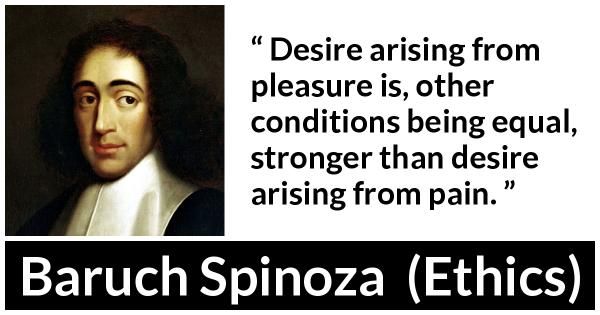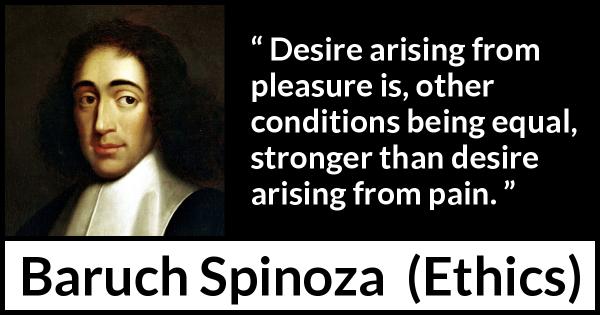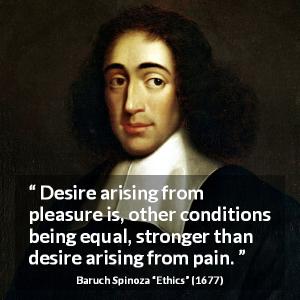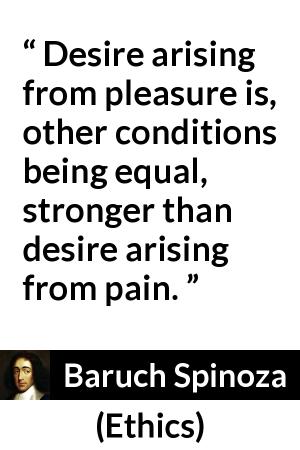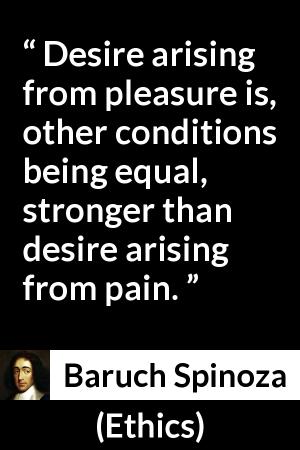“ Desire arising from pleasure is, other conditions being equal, stronger than desire arising from pain. ”
Baruch Spinoza, Ethics (1677). copy citation
| Author | Baruch Spinoza |
|---|---|
| Source | Ethics |
| Topic | pleasure desire |
| Date | 1677 |
| Language | English |
| Reference | |
| Note | Translated by R. H. M. Elwes |
| Weblink | http://www.gutenberg.org/files/3800/3800-h/3800-h.htm |
Context
“I have not written the above with the object of drawing the conclusion, that ignorance is more excellent than knowledge, or that a wise man is on a par with a fool in controlling his emotions, but because it is necessary to know the power and the infirmity of our nature, before we can determine what reason can do in restraining the emotions, and what is beyond her power. I have said, that in the present part I shall merely treat of human infirmity. The power of reason over the emotions I have settled to treat separately.
PROP. XVIII. Desire arising from pleasure is, other conditions being equal, stronger than desire arising from pain.
Proof.—Desire is the essence of a man (Def. of the Emotions, i.) , that is, the endeavour whereby a man endeavours to persist in his own being. Wherefore desire arising from pleasure is, by the fact of pleasure being felt, increased or helped; on the contrary, desire arising from pain is, by the fact of pain being felt, diminished or hindered; hence the force of desire arising from pleasure must be defined by human power together with the power of an external cause, whereas desire arising from pain must be defined by human power only.” source
PROP. XVIII. Desire arising from pleasure is, other conditions being equal, stronger than desire arising from pain.
Proof.—Desire is the essence of a man (Def. of the Emotions, i.) , that is, the endeavour whereby a man endeavours to persist in his own being. Wherefore desire arising from pleasure is, by the fact of pleasure being felt, increased or helped; on the contrary, desire arising from pain is, by the fact of pain being felt, diminished or hindered; hence the force of desire arising from pleasure must be defined by human power together with the power of an external cause, whereas desire arising from pain must be defined by human power only.” source
